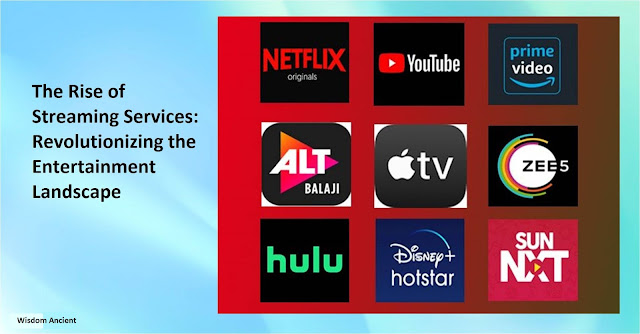Introduction
The entertainment industry has undergone a remarkable transformation in recent years, thanks to the rise of streaming services. With the advent of platforms like Netflix, Amazon Prime Video, and Disney+, audiences now have unparalleled access to a vast array of movies, TV shows, and original content. In this article, we will explore the impact of streaming services on the entertainment landscape, the benefits they offer to consumers, the challenges they pose to traditional media, and the future of the industry in this digital era.
Unprecedented Access and Convenience
Streaming services have revolutionized the way we consume entertainment by offering unprecedented access and convenience. Unlike traditional television or movie theaters, where viewers had to adhere to specific schedules or wait for physical media releases, streaming platforms provide on-demand access to a vast library of content. Subscribers can watch their favorite movies and shows whenever and wherever they choose, using a variety of devices such as smartphones, tablets, smart TVs, or computers.
The benefits of streaming services extend beyond convenience. These platforms offer personalized recommendations based on users' viewing habits and preferences, introducing them to new and diverse content. Additionally, the ability to pause, rewind, or fast-forward through programs provides viewers with greater control over their entertainment experience.
Challenges to Traditional Media
The rise of streaming services has presented significant challenges to traditional media outlets. Cable TV providers and movie theaters, in particular, have faced intense competition as consumers increasingly opt for the convenience and flexibility of streaming platforms. The decline in cable subscriptions and box office revenues is a clear indication of this shift in consumer behavior.
Streaming services have also disrupted traditional content distribution models. The emergence of original programming from
streaming giants like Netflix and Amazon has attracted top talent, resulting in high-quality productions that rival or even surpass those from traditional networks. This has forced traditional media companies to adapt and invest in their own streaming services to remain competitive.
Moreover, the streaming model offers greater opportunities for niche and independent content creators. These platforms provide a platform for diverse stories and perspectives that may have otherwise struggled to find mainstream distribution. This has led to a renaissance in storytelling, fostering creativity and innovation within the industry.
The Future of the Entertainment Industry
As streaming services continue to dominate the entertainment landscape, the industry is poised for further evolution. The competition among streaming platforms has intensified, leading to an influx of original content and higher production budgets. This has resulted in a golden age of television, with shows that rival the quality and popularity of big-screen blockbusters.
In addition to traditional streaming services, the rise of ad-supported platforms and live streaming options has expanded the choices available to consumers. Ad-supported platforms offer free access to a limited selection of content, supported by advertising revenue.
Live streaming services provide real-time access to sports events, concerts, and other live performances, allowing viewers to experience events remotely.
Technological advancements will continue to shape the future of entertainment. The adoption of
5G technology promises faster internet speeds and improved streaming quality, enabling seamless viewing experiences on various devices. Virtual reality (VR) and augmented reality (AR) are also gaining traction, offering immersive and interactive entertainment experiences.
Furthermore, streaming services are becoming global entities, catering to audiences around the world. This globalization has led to increased diversity and cross-cultural exchange in the content available, fostering a richer and more inclusive entertainment landscape.
Conclusion
The rise of streaming services has transformed the entertainment industry, providing consumers with unprecedented access, convenience, and diverse content. While traditional media faces challenges in adapting to this
digital era, streaming platforms have ushered in a new wave of creativity and opportunities for content creators.







